‘I would be happy to buy domestic, but we have no analogues’: Tatarstan farmers risk being left without machinery
Agrarians of Tatarstan — about the problem of preparing agricultural machinery for sowing in the absence of imported components
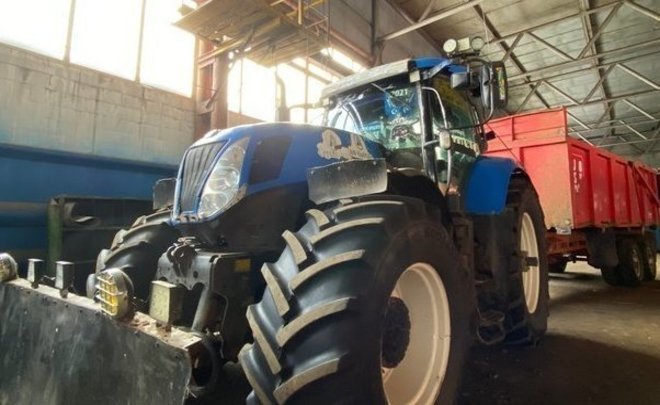
Tatarstan agricultural producers are entering the active phase of preparing equipment for the new spring field season. The new geopolitical reality has made adjustments to this process. Logistical failures remain the main problem in providing farmers with machinery and spare parts. Due to the imposition of sanctions by European countries, difficulties have arisen with the supply of necessary components, equipment and agricultural machinery themselves. Realnoe Vremya tried to figure out whether the farmers of the republic are ready to switch from imported equipment to domestic one.
“Everything is there, but more expensive and longer”
Marat Karimov, the director of Kyrlay agricultural firm of the Arsky district — the leader in potato cultivation, told how his farm is preparing equipment for sowing. According to him, serious problems with imported components have been avoided thanks to pre-planned work.
“All spare parts are delivered, just delivery times have increased and prices have risen. In our farm, about 80% of all equipment is imported. We took care of it in advance: we made orders and paid 30% of the cost. We try to buy only the most necessary, if possible, we choose spare parts ourselves, for example, the same bearings or belts — small parts are the easiest to replace. What we can't find here — we order from abroad. In general, according to our calculations over the past year and a half, the cost of spare parts has increased by about 50%.”
As the chief engineer of the agrofirm, Ayzat Akhmetkhanov, told, farmers have adapted to solve the problem with imported spare parts in their own way. In one case, original components are needed for imported equipment, in another — they can be replaced with Chinese ones, in the third — a spare part can be made by yourself.
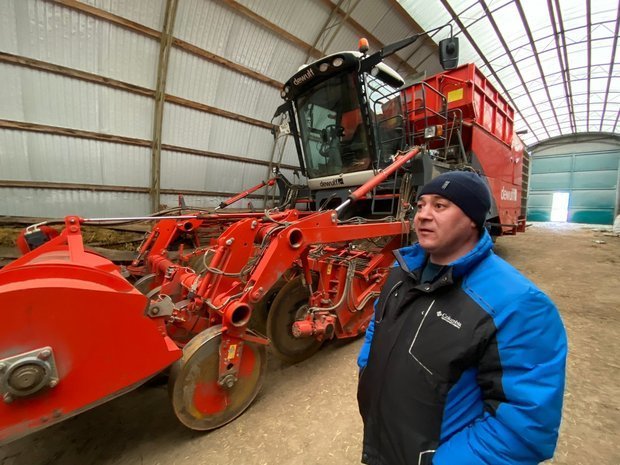
“Today, the need for spare parts for seven New Holland tractors is 5 million rubles, five combines need spare parts for about 8 million rubles. Prices have increased several times.”
The head of the farm admitted that he was not going to give up imported equipment for the simple reason that neither in Russia nor, for example, in Belarus, there are no analogues of them:
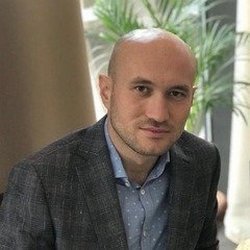
There are also opposite examples when foreign goods are preferred to their own. The head of the agricultural firm said that a few years ago the farm bought seed potatoes in Germany, but now they found an analogue in Moscow Oblast. A variety resistant to weather changes and viruses has been developed by Russian scientists.
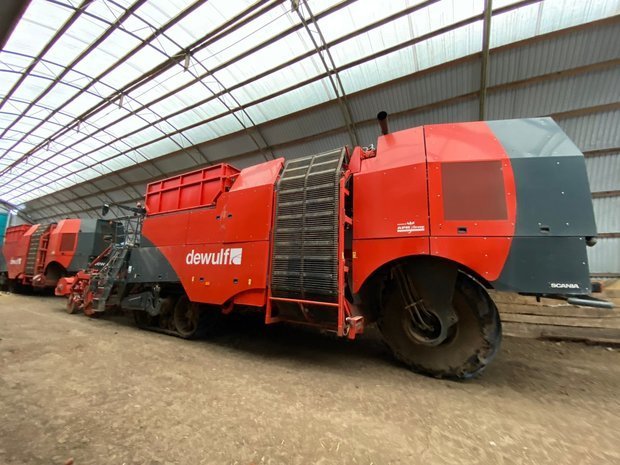
“We are happy to replace everything that can be replaced with domestic. But it is problematic to do it right away. I think this applies to all farms. If you already have purchased imported equipment, you want to keep it for a long time, because you still have to pay for it and a loan," said Marat Karimov.
According to the agrarian, state aid has now become more tangible: in particular, the amount of subsidies has increased.
“The better you work, the more subsidies you can get. Besides, the 70/30 programme continues to operate, for example, now we have been compensated for the costs of 2021.”
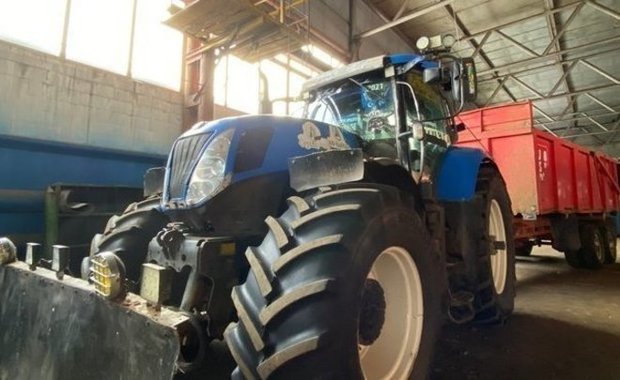
“I made a choice in favour of problem-free machinery”
The dealers themselves recognise the problems with the logistics of imported equipment. The head of the separate division of Tekhno-Snab PLC in Tatarstan, Garey Nutfullin, told Realnoe Vremya that he prefers to deal with 'trouble-free' equipment, reliable in terms of timing and logistics. For example, activities have been established with the Altai Krai, in particular with Barnaul.
“Previously, we were positioned as an official dealer of agricultural machinery in the Czech Republic, France, Turkey. We can still bring foreign equipment and components, but only on request. We immediately announce all the risks to the client, take an advance payment and inform them that the delivery time increases to 9 months. And even in this case, there are no guarantees: there may be delays in terms or the exchange rate of the dollar and the euro can change. That is, everything is difficult with imported equipment now. At least for me, although among my colleagues, there are those for whom it is possible to sell equipment from abroad even in these conditions. I like working with trouble-free equipment," the dealer said.
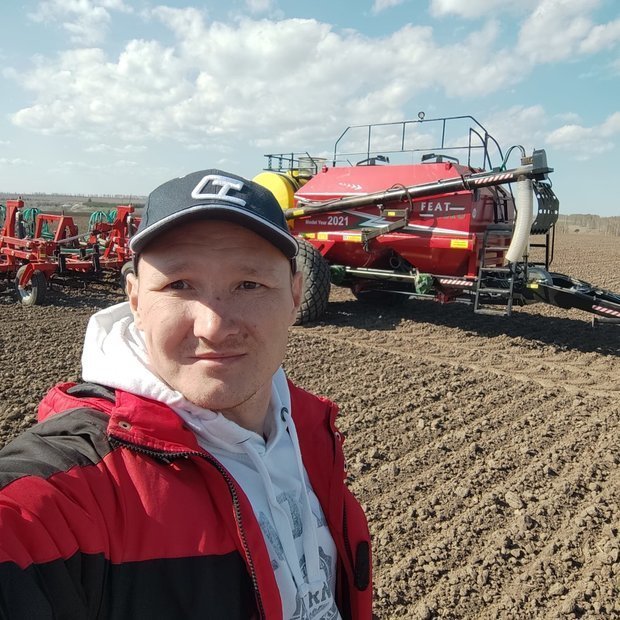
As noted by Garey Nutfullin, requests for imported equipment remain despite everything.
“Now I'm taking a loader from China, but it's stuck at the border for a while. We discussed with the client in advance that the delivery times may change, the buyer understood the situation, although he had every right to be outraged, according to the contract, all deadlines have already passed. We still have business ties with companies from the Czech Republic and France, but there are also nuances here. For example, we booked 70 plows from a Czech company, of which only 10 were provided to us.”
The company provides warranty service of equipment throughout the year, including imported. Partners are bringing original spare parts through third countries, the entrepreneur said, mostly through the countries of the Customs Union.
“We have an instruction from the Ministry of Agriculture and Food of the Republic of Tatarstan that we must respond to the requests of farmers 24 hours a day. The most important thing is that local farmers do not have problems. If a company cannot meet the required deadlines and is not able to provide everything necessary, others are found in its place. Everything is strict. Therefore, reputation is very important to us.
Garey Nutfullin also noted that now prices for some foreign cars are even cheaper than for domestic agricultural machinery. All because of the dollar and euro exchange rate.
“But bringing a foreign car is a problem. TatAgroExpo exhibition is to be held in Kazan soon. There, I will present five positions of agricultural machinery, one of them Czech. I managed to bring it in advance. The Czech car has already been paid for by a client, after the exhibition it will immediately go to him.”
“Now a careful attitude to machinery is of particular importance”
Everything is not easy, but you can always find a way out, admitted the head of the Minnikhanov Mintalip Ismagilovich farm of the Tukayevsky district, Mintalip Minnikhanov:
“I think even if even tougher sanctions are imposed, we should not despair. We need to switch to domestic cars. Minsk, Rostov — excellent equipment is produced here. The situation is not catastrophic. All agricultural enterprises try to have their own reserve. The most important thing for us is that the price of agricultural products is appropriate so that we can cover our costs. For example, this year there is a big problem with the price of grain: it can be said not to be given at all. What is being offered now does not even cover the costs. Although it should be noted that the state plans to support producers and add 2 rubles for each kilogramme of grain.”
Mintalip Minnikhanov said that 70% of the equipment in his farm is imported. According to him, it is distinguished primarily by reliability, it does not break during sowing or during harvesting.
“We always take care of such high-precision equipment, we do not put anyone to work on it. For example, we have a Belgian potato harvester, only my son, the manager, and another person, a mechanical engineer who graduated from university, work on it. We do not allow a simple mechanic to such equipment. We also have reliable Belarusian equipment. For example, a combine harvester that has been working for 8 years, we have never even changed the battery on it, I work on this combine myself. If some simple detail fails, we can restore it ourselves," says the farmer.
Now the farm is building a new universal storage for 2,5 tonnes and plans to purchase a grain cleaning complex. Mintalip Minnikhanov announced that he is going to buy new equipment in the Minzelinsky district of Tatarstan.
“I myself think that it is necessary to return to domestic technology, it is quite realistic. Thanks to the state, 30% of the cost of equipment is compensated, although not immediately, with a delay of about 2 years, but there is another point — sellers already have time to raise prices by, for example, 30%.”
“Milking parlors and equipment for growing vegetables are the most difficult to import”
In the agro-industrial complex of the republic, more than 10% of tractors and more than 30% of agricultural machines are imported. Such data is provided by the Ministry of Agriculture and Food of the Republic of Tatarstan. According to the deputy minister of agriculture and food of the Republic of Tatarstan, Rafael Fatakhov, the course for import substitution began long before February 2022.
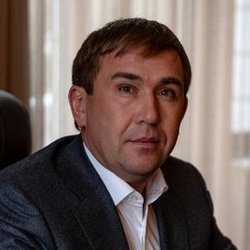
According to the deputy minister, the largest contribution to import substitution is made by Finprom — the company adapts domestic YaMZ engines for New Holland TJ450 tractors. The tractor was tested on the deep processing unit in the farm Narmonka of the Laishevsky district. Experience has shown significant fuel savings compared to the original, while the power is saved. The cost of the YAMZ-7511 engine with a capacity of 420 hp is 2,6 million rubles. The YAMZ-6508 engine with a capacity of 530 hp costs 2,8 million rubles. For comparison, the overhaul of the original Cummins engine for such a tractor would have cost 4,5 million rubles. The costs of replacing the engine with a domestic one are reduced by 1,7-1,9 million rubles.
“The Kukmor enterprise Agrovet has produced milking machines Douvak for foreign milking machines for more than 10 years. MTK-Ak Bars produces and carries out major repairs of parts for beet harvesters Ropa, as well as repair of tyres for imported tractors. Agroplast enterprises of Naberezhnye Chelny and Pruzhinnyy Project of Kazan also successfully produce parts for imported machinery. Agro-Eco PLC in Tambov produces non-original spare parts for imported agricultural machinery Amazone, Vaderstad, Kverneland, Gregoire Besson, Gaspardo, John Deer. The farms of the republic actively cooperate with the manufacturer. Besides, repair enterprises Kuzembetyevsky RMZ, Arsky RMZ, Kamskaya Mekhanika, “Naberezhnye Chelny — Kirovets, Korib, and others ae successfully operate on the territory of the republic. Agricultural organisations actively cooperate with them. We all know that during repairs it is possible to increase the resource of machines and use the fleet of equipment more efficiently.
Rafael Fattakhov emphasised that in the process of updating the machine and tractor fleet, priority is given to equipment of domestic production. When subsidising the expenditure part within the framework of state programmes, in addition to high-performance milking machines, equipment for the cultivation of vegetables and sugar beet, equipment of domestic production and the countries of the Customs Union is subsidised. Farms cooperate with Rostselmash and Gomselmash to upgrade the combine harvester fleet (Gomel, Belarus). Besides, tractors are being purchased from factories in St. Petersburg, Rostov-on-Don, and Minsk. The place of the Western brands that left us have been taken by Iota, Zumlion, Agropolla, Lovol, and other Chinese brands. In 2022, the farms of the republic purchased 75 such tractors.
“There are several production enterprises operating on the territory of the Republic of Tatarstan: Agromaster (Muslyumovo village) produces sowing and tillage equipment; Kuzembetyevsky RMZ JSC (Menzelinsky district) produces a complex of grain dryers and grain cleaning machines; Kazselmash (Vysokogorsky district) produces self-propelled and trailed sprayers. Tatagrokhimservis produces pickling and tillage machines. The Kazan Irrigation Equipment Plant produces irrigation machines.”
There are still areas that have not fallen under import substitution. In particular, there are problems with high-performance milking parlors and robot milkmaids, beet harvesters and complexes of equipment for growing vegetables.